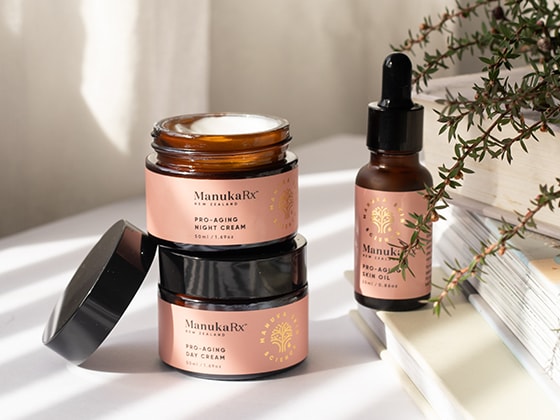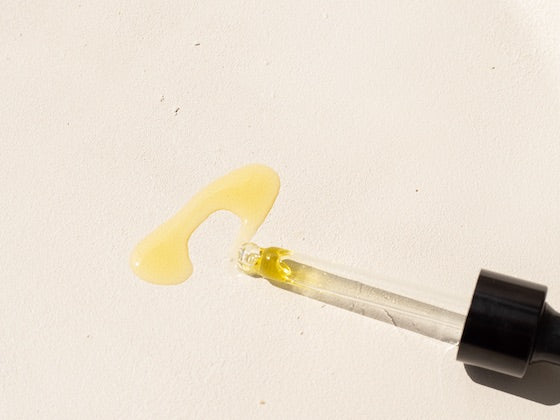The power of nature cannot be denied, and the power of natural ingredients in our diets, for our bodies as medicinal remedies, and for skincare cannot be ignored.
Introducing more natural ingredients in our everyday lives can have profound positive impacts on our bodies, and the world is fast catching on to the benefits of using less artificial and synthetic treatments.

There are a few incredible ingredients that stand out far above the rest for antibacterial skincare that help with infections, inflammation, acne, dry skin, and more -- tea tree oil, mānuka honey, and East Cape mānuka oil.
Let’s jump into the plethora of uses and benefits of these three wonder ingredients straight from the earth and what benefits they hold for holistic and natural skincare routines.
Mānuka HoneyNative to New Zealand, Leptospermum Scoparium or mānuka is a natural ingredient packed with healing power, and mānuka honey has been used since WWII in a wide range of medicinal applications.

Honey has been used worldwide since ancient times for medicinal purposes. Because mānuka honey is high in phenolic compounds and the active ingredient methylglyoxal, it makes the honey especially great for treating wounds and burns, soothing throats or treating ulcers, and can even be used to help with problematic skin issues like acne. But due to the viscosity of mānuka honey (thickness and stickiness), it makes it difficult to use in skincare products.
Some uses include:
- Putting over cuts and small wounds to keep clean and fight infection
- In teas for soothing sore throats and ulcers
- Spot treatment for back acne outbreaks
- Oral health and toothaches
Australian melaleuca alternifolia, better known as tea tree oil, has become the poster essential oil used in so many hair and skincare products, and no wonder -- it holds powerful rejuvenating properties and can be used in numerous types of products. And of course, it smells amazing.

Not to be confused with tea trees that produce green, black, or oolong tea, tea tree oil is not to be digested ever. But, as an ingredient in eco-friendly household cleaning solutions, skincare and haircare -- the high Terpinen-4-ol compounds make it extremely effective as an antifungal and antibacterial remedy. The terpinen-4-ol compounds also help white blood cell production to help protect against germs and infection.
Some uses include:
- Tea tree oil makes for a great bug repellent
- It’s good for soothing bug bites and stings
- Soothing aching muscles and joints
- Helps with dandruff and dry skin areas like elbows and knees
- Works great for a hand sanitiser
Given the wide-ranging benefits listed about tea tree oil for its antibacterial properties, it might come as a shock when we say that East Cape mānuka oil is 20-30 times more effective than tea tree oil. Another shocker is that it is up to 1,000 times more powerful when compared to mānuka honey for antibacterial properties even though both are products of the mighty mānuka plant. Mānuka oil has only been distilled for the last few decades but the benefits are fast being recognised.
What makes East Cape mānuka oil so much better than the others?
It comes down to the high concentration of triketones in East Cape mānuka oil. This has been linked to mānuka oil’s effectiveness against preventing and killing harmful clinical infections from gram-positive bacteria like Staphylococcus. Mānuka oil is synergistic, which allows this amazingly potent oil to be combined with other natural ingredients like our essential oil blends to boost their effectiveness and help treat a wide range of skincare challenges.

Along with being 20-30 times more effective than tea tree oil for antibacterial use, it’s also anti-fungal, anti-inflammatory, antimicrobial and even contains anti-aging and antioxidant properties which make its potential applications endless -- the rejuvenating properties and uses are still being unlocked. In addition, there are no known allergies to mānuka oil and it is extremely gentle on the skin.
Some uses include:
- Drastically reducing the chances of infection, and is especially effective against gram-positive bacteria.
- Can help reduce stress as an aromatic
- Helping with athlete’s foot and ringworm
- Reducing acne bacteria
- Natural antiseptic and works great as a hand sanitiser.
- Helping with dry skin, can be anti-aging, and used to reduce fine lines and wrinkles
- Reducing inflammation for bug bites and rashes
- Household disinfectant and cleaner
- An effective natural deodoriser
- And more!
Now that you’ve read about the restorative, healing, and antibacterial potential of these amazing natural ingredients, you can utilise each one to address many different health and skincare needs in your life. East Cape mānuka oil isn’t as widely-known and popular as essential oils like tea tree oil, but it has emerged as one of the most powerful natural antibacterial remedies known.
Discover the benefits for yourself by picking up our East Cape mānuka oil today!







1 comment
Margaret Healy
Hey folks. I used Manuka honey for two small leg ulcers when nothing else was useful. Magical stuff. My question is, can I use Manuka oil in the same way? TIA MH
Hey folks. I used Manuka honey for two small leg ulcers when nothing else was useful. Magical stuff. My question is, can I use Manuka oil in the same way? TIA MH